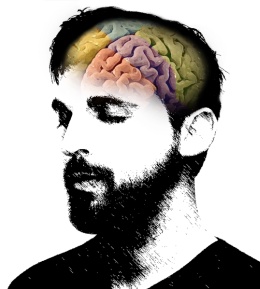<p>As we age, most of us experience a decline in memory. Unfortunately, some endure catastrophic problems that prove irreversible. If you want to keep your mind sharp and your memories clear, learn three surprising things that can impact our abilities to retain information by causing permanent changes to our brains.</p>
<h2>Poor Sleep</h2>
<p>A growing body of evidence is showing that sleep is critical to supporting good cognitive function. Now, more and more research is showing that insufficient sleep can cause serious harm to our brains. One study published in the journal Nature Neuroscience indicates that insufficient sleep can actually cause permanent structural changes in the brain which can damage its ability to retain long-term memories.</p>
<h2>Pain</h2>
<p><img style="float: right;margin: 5px" src="http://www.offtopicmedia.com/images/tracking/2013-03-18-Durham-Memory.jpg" alt="" /><br />
Researchers out of the University of Porto in Portugal recently established clear ways in which chronic pain can harm our abilities to remember. Published in the Journal of Neuroscience, their work showed that unrelenting pain has the power to interrupt the flow of new information between two specific brain regions which play a central role in memory retention. The study also showed that, as our brains attempt to cope with constant sensations of pain, cognitive disturbances lead to deficiencies in attention, recognition memory and spatial memory.<br />
According to Dr. Brad Durham who provides dental treatments for patients who suffer from pain and other symptoms associated with temporomandibular joint disorders (TMD), he sees many people who have endured serious problems associated with their chronic symptoms.<br />
&#8220;Most of our patients don&#8217;t just want relief from chronic pain; they want to enjoy a higher quality of life,&#8221; he said. &#8220;For some, this means escaping other symptoms such as facial tenderness, jaw clicking, tinnitus or chewing difficulties.&#8221;<br />
For others, on the other hand, it could mean overcoming memory problems that make work more difficult. TMD affects people in different ways; however, by relieving some of the painful symptoms of TMD, people may see improvement in the memory problems caused by the disorder.</p>
<h2>Hypertension</h2>
<p>Researchers out of the University of California have demonstrated that high blood pressure can impair our memories by causing vascular damage in the brain. Published in the JAMA Neurology, the study used MRI scans on more than 60 patients to demonstrate that subjects who showed more signs of vascular brain injury also demonstrated worse memories, while also having greater difficulties organizing thoughts and solving problems.</p>
<h2>Boosting Memory Power</h2>
<p>Unfortunately, once memory problems begin, they can be difficult to reverse. That said, you can reduce your risk of cognitive problems by eating right, exercising regularly and by getting adequate sleep. Additionally, if you suffer from chronic pain or a sleep disorder, get help as soon as possible, before your poor choices indirectly lead to long-term cognitive difficulties.</p>
<h5>Citations:</h5>
<ul>
<li>News-medical.net: Study finds reason why patients with chronic pain often suffer from impaired short-term memory</li>
<li>The Salt Lake Tribune: Study links poor sleep to dulling memories</li>
<li>Futurity.org: High blood pressure can cripple memory</li>
</ul>
<h5>Featured images:</h5>
<p><img style="width: auto" src="http://www.offtopicmedia.com/images/tracking/2013-03-18-Durham-Memory.jpg" alt="" /></p>
<ul>
<ul></ul>
</ul>
<p><span class="license">License: Creative Commons</span></p>
<ul>
<ul></ul>
</ul>
<p><span class="source">image source</span><br />
Ryan Lawrence writes for Off-Topic Media. Thanks to Dr. Brad Durham for his contributions to this story.</p>

3 Surprising Things That Hurt Our Memories
